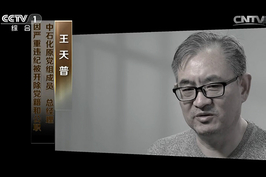Transparency, Better Institutions Needed to Push Anti-Corruption Drive Forward
A documentary series aired by China's state television has put the spotlight on the country's anti-corruption campaign by unveiling to the public — for the first time — salacious details about the wrongdoings of top officials caught in the graft net.
The primetime series, titled Always on the Road — with fresh footage on the indulgent lifestyles of a handful of high-profile cadres — was aired ahead of the Communist Party's crucial sixth plenum and is seen by many as a strong signal that the party was reaffirming its strict position against graft.
The party's attempts to crack down on corruption, initiated by President Xi Jinping after he took the reins in late 2012, has caught powerful "tigers" as well as lowly "flies" and won wide public support. But very few details of graft cases have been made public, creating an information vacuum in which rumors and speculation have thrived, at times even undermining the campaign.
The eight-episode series, produced by the party's anti-graft watchdog, the Central Commission for Discipline Inspection (CCDI), together with China Central Television, had plenty of outrageous examples of officials who had abused their power and amassed millions in ill-gotten gains. One episode included a tour of former Hebei province party boss Zhou Benshun's sprawling 800-square-meter private residence and revealed that he had spent over 1 million yuan ($148,000) on two chefs from his native Hunan province, who could prepare the fiery local fare, and two housekeepers — one exclusively to care for his pets.
In another episode, valuable furniture and rare tea given to Bai Enpei, then the party secretary of Yunnan province, by businessmen vying for government contracts and associates gunning for promotions, were on display. A single jade bracelet that Bai's wife received as a gift was valued at 15 million yuan.
This candid approach is a step toward making the anti-corruption drive more transparent, thereby enhancing its credibility and legitimacy.
In the past, attempts at in-depth investigations have at times been hindered by concerns over tarnishing the party's image. But authorities have now put aside fears of revealing skeletons in the party's closet, which has led to breakthroughs in the fight against corruption. It's a move that required courage and wisdom. It also demonstrates the top leadership's determination to wipe out graft across the board, with no exceptions.
Corruption exerts a heavy toll on society. It is only through effective institutional arrangements that this menace can be successfully contained. Institutional building will also form a foundation for the long-term healthy development of the country. Reflecting on past failures is a good starting point for this exercise.
Fighting graft is a long-term war that requires fortification at every step to secure victories made along the way. That is because one wrong step can nullify all previous gains. As the campaign deepens its scope, it is important to be vigilant of those with vested interests who attempt to frame the crackdown as a temporary gust of wind that will soon fade. Some blame attempts to rein in official excess for the ongoing economic slowdown and even "laziness" among authorities. These are hollow arguments.
After the initial shock-and-awe phase, it is time for the campaign to step up efforts on institutional building. Corruption stems from giving unrestricted power to individuals without putting adequate checks and balances in place — and absolute power corrupts absolutely. It can only be weeded out when power is restrained by strengthening the rule of law.
Always on the Road reveals that most disgraced officials have abused their positions to grant favors to businesses in key economic sectors such as mining and real estate. It reflects an issue at the heart of the current reform agenda — the relationship between government and the market. The state's overwhelming control of resources has created a fertile ground for corruption to thrive in. Pushing for comprehensive reforms that include cutting red tape and further liberalization are the only means to address this issue.
The effectiveness of a policy depends on how well it is implemented. And the cage built to restrain power must be a solid one. In the TV series, Zhou Benshun confessed that he had prevented local investigators from arresting a corrupt official until the CCDI got involved. It reflects how the unwritten rules of officialdom can twist the arm of the law.
Institutional building requires a long-term commitment. It is even more challenging in a vast country like China with complex economic and political conditions. The central government has time and again demonstrated its determination to stick to the current course of rooting out corruption and promoting the rule of law. Always on the Road is a clear sign that discipline within the party would be tightened further. As the party's sixth central committee plenum gets underway, the public is waiting for a road map in the next stage of the anti-corruption campaign.
Hu Shuli is the chief editor of Caixin Media.


- Sign In
- Cancel
- Remember me
- Forgot Password
- Don't have an account? Create one
- 1Cover Story: China’s Balancing Act to Keep Its Social Security System Afloat
- 2China’s Macro Leverage Ratio Rises to 294.8% Despite Slower Borrowing
- 3TikTok Shop Faces Regulatory Hurdles in Bid to Become No. 1 in Vietnam, Expert Says
- 4U.S. Lawmakers Seek Sanctions on Chinese Carmakers for ‘Aiding Russian Military’
- 5Hillhouse Unit to Buy Back Longi Green Energy Shares Amid Probe
- 1Power To The People: Pintec Serves A Booming Consumer Class
- 2Largest hotel group in Europe accepts UnionPay
- 3UnionPay mobile QuickPass debuts in Hong Kong
- 4UnionPay International launches premium catering privilege U Dining Collection
- 5UnionPay International’s U Plan has covered over 1600 stores overseas


